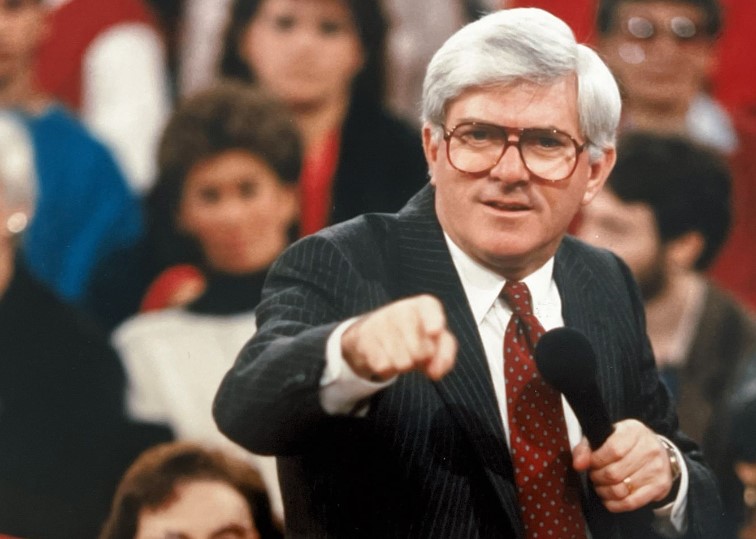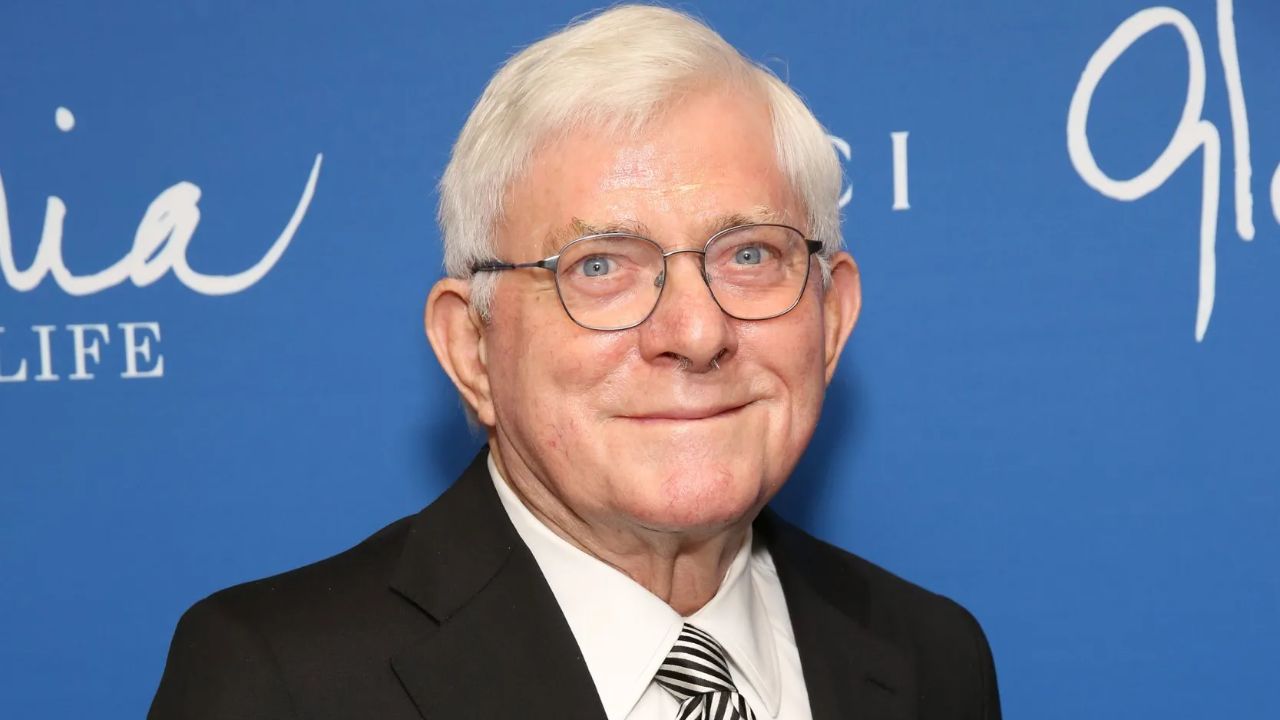When we talk about Phil Donahue, the name resonates with a legacy of groundbreaking talk shows and impactful journalism. But today, we're diving into a deeply personal aspect of his life—his battle with Alzheimer's disease. This isn't just a story; it's a journey filled with courage, resilience, and lessons for all of us.
Alzheimer's isn't just a medical condition; it's a chapter in life that affects not only the individual but also their entire family. For Phil Donahue, this chapter has been both challenging and transformative. As we explore his story, we'll uncover how he's handled this journey with the same grace and determination that defined his career.
Through this article, we aim to provide insight, support, and understanding for those facing similar challenges. Whether you're a fan of Phil's work or someone seeking guidance on managing Alzheimer's, this piece is for you. Let's dive in and learn together.
Read also:Kaitlyn Krems Onlyfans Pics Your Ultimate Guide To Her Journey And Content
Table of Contents
- Phil Donahue: A Brief Biography
- Understanding Phil Donahue's Alzheimer's Diagnosis
- Early Signs and Symptoms
- The Impact on Phil's Career
- The Role of Family Support
- Exploring Treatment Options
- Lifestyle Changes and Coping Strategies
- Phil's Philosophy on Life and Aging
- Raising Public Awareness
- Conclusion: Lessons from Phil's Journey
Phil Donahue: A Brief Biography
Before we delve into Phil Donahue's battle with Alzheimer's, let's take a moment to appreciate his remarkable life and career. Born on December 21, 1935, in Cleveland, Ohio, Phil Donahue became a household name through his pioneering talk show, "The Phil Donahue Show." Known for tackling taboo subjects and giving a voice to the voiceless, Donahue revolutionized television talk shows in the 1970s and '80s.
Key Achievements and Milestones
Throughout his career, Phil achieved numerous milestones that cemented his place in television history. Below are some highlights:
- First daytime talk show host to tackle topics like abortion, AIDS, and divorce.
- Inducted into the Television Hall of Fame in 1990.
- Recipient of 19 Emmy Awards for his groundbreaking work.
Here's a quick glance at Phil's personal details:
| Full Name | Philip Arthur Donahue |
|---|---|
| Date of Birth | December 21, 1935 |
| Place of Birth | Cleveland, Ohio, USA |
| Spouse | Susan Shields |
| Children | Two sons |
Understanding Phil Donahue's Alzheimer's Diagnosis
Phil Donahue's diagnosis with Alzheimer's disease came as a shock to many fans and admirers. The condition, which affects millions worldwide, is a progressive neurological disorder that impacts memory, thinking, and behavior. For someone who built a career around communication and connection, this diagnosis was particularly poignant.
What is Alzheimer's Disease?
Alzheimer's disease is the most common form of dementia, accounting for 60-80% of cases. It's characterized by the buildup of amyloid plaques and tau tangles in the brain, leading to cognitive decline. Early symptoms often include forgetfulness, difficulty concentrating, and mood changes.
According to the Alzheimer's Association, over 6 million Americans live with Alzheimer's, and this number is expected to rise as the population ages.
Read also:Christina Revels A Rising Star In The Spotlight
Early Signs and Symptoms
Recognizing the early signs of Alzheimer's is crucial for timely intervention and management. For Phil Donahue, the journey began with subtle changes that gradually became more apparent. Here are some common early signs:
- Difficulty remembering recently learned information.
- Challenges in planning or solving problems.
- Confusion with time or place.
- Trouble understanding visual images and spatial relationships.
Phil's family and friends noticed these changes and encouraged him to seek medical advice. Early detection can make a significant difference in managing the condition and improving quality of life.
The Impact on Phil's Career
Phil Donahue's career was defined by his ability to connect with people and address pressing social issues. However, Alzheimer's brought new challenges that affected his professional life. As the disease progressed, he found it increasingly difficult to engage in the same level of public discourse that once came naturally to him.
Transitioning from Public Life
Phil's decision to step back from the public eye was both courageous and necessary. He prioritized his health and well-being, setting an example for others facing similar challenges. While it was a tough decision, it allowed him to focus on what truly matters—family, love, and living each day to the fullest.
The Role of Family Support
No one should face Alzheimer's alone, and Phil Donahue has been fortunate to have the unwavering support of his family. His wife, Susan Shields, has played a vital role in his care and well-being. Together, they've navigated this journey with grace and resilience.
How Families Can Help
Family members can make a significant difference in the lives of those with Alzheimer's. Here are some tips:
- Stay involved in daily activities and provide emotional support.
- Create a safe and comfortable environment at home.
- Encourage social interaction and engagement.
- Seek professional help when needed.
Exploring Treatment Options
While there's currently no cure for Alzheimer's, various treatments can help manage symptoms and improve quality of life. Phil Donahue has explored several options, including medication and lifestyle changes, to address his condition.
Medications and Therapies
Drugs like cholinesterase inhibitors and memantine are commonly prescribed to slow cognitive decline. Additionally, therapies such as cognitive stimulation and physical exercise can have positive effects. It's essential to work closely with healthcare professionals to tailor a treatment plan that suits individual needs.
Lifestyle Changes and Coping Strategies
Adopting a healthy lifestyle can significantly impact the progression of Alzheimer's. Phil Donahue has embraced several changes to enhance his well-being. Here are some strategies that can make a difference:
- Maintaining a balanced diet rich in fruits, vegetables, and omega-3 fatty acids.
- Engaging in regular physical activity, such as walking or swimming.
- Practicing mindfulness and stress reduction techniques.
- Staying socially active and connected with loved ones.
Phil's Philosophy on Life and Aging
Phil Donahue has always been a proponent of living life to the fullest, regardless of circumstances. His approach to aging and Alzheimer's reflects this philosophy. He encourages others to embrace every moment and find joy in the simple things.
Words of Wisdom
In interviews and public appearances, Phil has shared his thoughts on life and aging. He emphasizes the importance of gratitude, resilience, and maintaining a positive outlook. These lessons are valuable not only for those with Alzheimer's but for everyone navigating life's challenges.
Raising Public Awareness
Phil Donahue's journey with Alzheimer's has brought attention to the disease and its impact on individuals and families. By sharing his story, he's helping to reduce stigma and promote understanding. Public awareness is crucial in driving research, funding, and support for those affected by Alzheimer's.
How You Can Help
There are many ways to contribute to the fight against Alzheimer's:
- Support organizations like the Alzheimer's Association through donations or volunteering.
- Advocate for increased research funding and policy changes.
- Educate others about the disease and its effects.
Conclusion: Lessons from Phil's Journey
Phil Donahue's battle with Alzheimer's is a testament to his strength and resilience. Through this journey, he's taught us valuable lessons about life, love, and acceptance. Whether you're facing similar challenges or simply seeking inspiration, Phil's story serves as a reminder that even in the face of adversity, we can find meaning and purpose.
We invite you to share your thoughts and experiences in the comments below. Your voice matters, and together, we can create a community of support and understanding. Don't forget to explore other articles on our site for more insights and guidance.
Thank you for joining us on this journey. Let's continue the conversation and make a difference—one story at a time.


